Build Trust
Should You Be Nasty or Nice in Negotiations?
22 January 2024
BY SCOTT M. GRAFFIUS | ScottGraffius.com
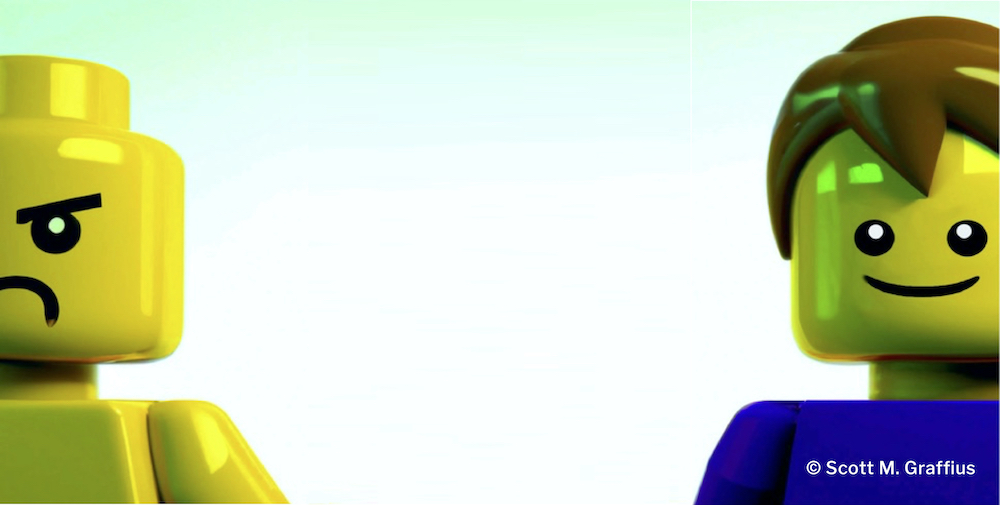
A PDF of this article is here.
Note: When discussing moods and behaviors related to negotiations, the respective research uses the terms “angry” or “nasty,” contrasted with “happy” or “nice.” For that reason, this article uses those same terms. Also consider that an unhappy, irritated, or frustrated person may be labeled as “angry.” And a tough, difficult, or demanding person may be labeled as “nasty.”

Introduction
Chances are that you’ve already participated in some form of negotiations in your personal or professional life and that you’ll do so in the future. Negotiation is defined as a discussion between two or more parties aimed at resolving points of difference, crafting outcomes to satisfy various interests, or otherwise establishing an agreement. Handling a job offer, asking for a promotion, and buying and selling property such as a car or a house are just a few examples of deals you may have executed. Enhancing your negotiation strategies, tactics, and skills can have a big payoff on the outcomes of future deals.

Main Section of Article
What can you add to your arsenal to help you maximize value at your next visit to the bargaining table? How about this: Is it advantageous to be nice or nasty in a negotiation? “The Interpersonal Effects of Anger and Happiness in Negotiations” — a study by Gerben A. Van Kleef and colleagues at the University of Amsterdam — uncovered the answer. Read on to gain insights from the work.
The study encompassed three experiments. The first experiment involved a computer-mediated negotiation in which participants couldn’t see their opponent. And participants were led to believe their counterpart was either happy or angry. The findings follow. Participants with an opponent who they thought was angry placed lower demands and made larger concessions than did participants with an opponent who they thought was happy.
The procedure for experiment 2 was similar to the first one. This one further explored the effect of the informed mood of negotiation counterparts. The results showed that participants used information on mood to infer their opponents’ limit and they adjusted their demands accordingly.
The third and final experiment examined the interplay between experienced and communicated emotion. It showed that angry communications (unlike happy ones) induced fear and thereby mitigated the effect of the counterpart’s experienced emotion.

Conclusion
In conclusion, the study by Van Kleef and colleagues found that negotiators are influenced by their counterpart’s emotions. It showed that the expression of anger can be advantageous in some negotiation scenarios, challenging the “golden rule” that always being nice wins.
However, being angry or nasty doesn’t mean acting unethically. And if a person is simply acting a certain way, doing so could backfire if their counterpart sees through the display.
Based on the study and additional resources delineated in the references/sources section of this article, here are some considerations regarding behavior and mood during negotiations.
When to be nice in negotiations:
When to be nasty in negotiations:
This article highlighted select valuable work on the nuances of negotiation behavior. For a deeper understanding, exploring the full research is highly recommended.


References/Sources
Select (partial) bibliography:

How to Cite This Article
Graffius, Scott M. (2024, January 22). Should You Be Nasty or Nice in Negotiations? Available at: https://scottgraffius.com/blog/files/win-win.html.




About Scott M. Graffius

Scott M. Graffius, PMP, SA, CSP-SM, CSP-PO, CSM, CSPO, SFE, ITIL, LSSGB is an agile project management practitioner, consultant, thinker, creator, multi-award-winning author, and international public speaker. Founder and CEO of Exceptional PPM and PMO Solutions™ and subsidiary Exceptional Agility™, he has generated over $1.9 billion for Global Fortune 500 businesses and other organizations he has served. Graffius and content from his books, talks, workshops, and more have been featured and used by Microsoft, Oracle, Broadcom, Cisco, Gartner, Project Management Institute, IEEE, National Academy of Sciences, United States Department of Energy, Yale University, Tufts University, and others. He delights audiences with dynamic and engaging talks and workshops on agile project management, AI, Tech leadership, video game development, strategic alignment, the science of high performance teams, and more. To date, he's presented sessions at 89 conferences and other events across 25 countries.
His full bio is available here.
Connect with Scott on:
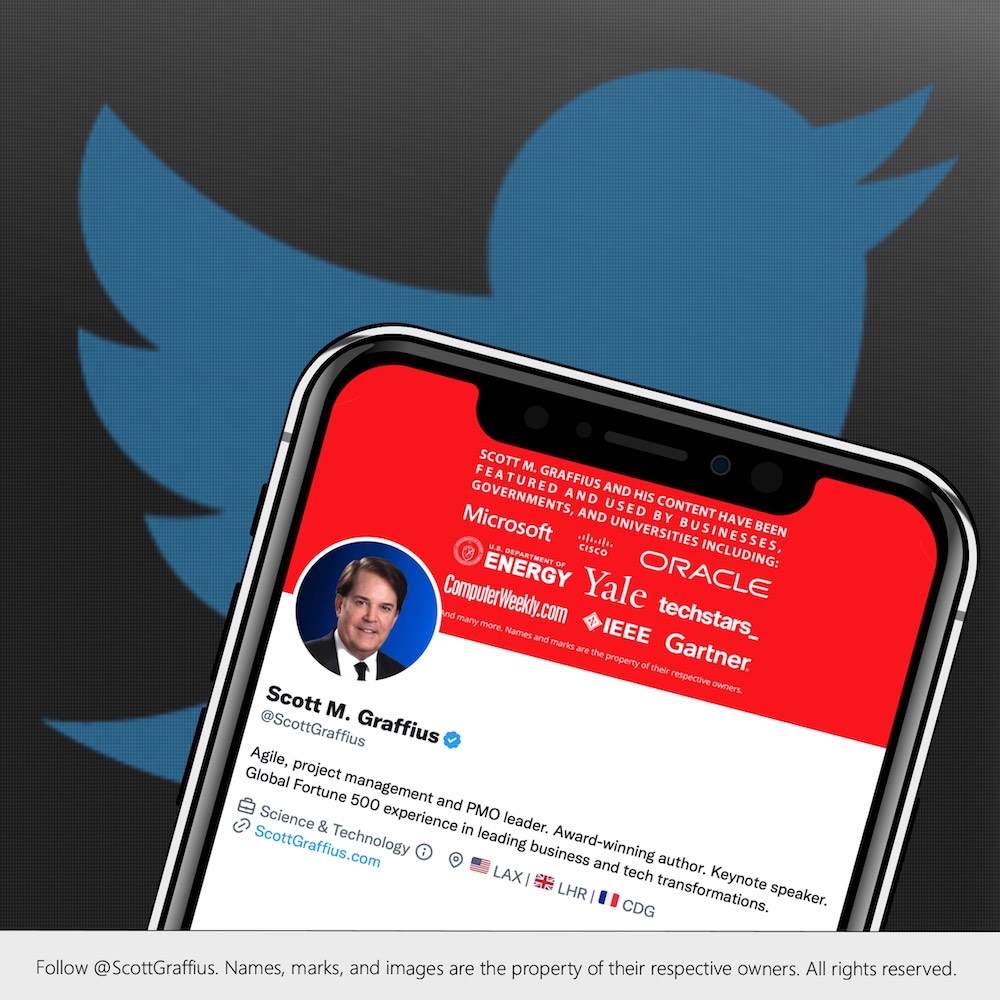
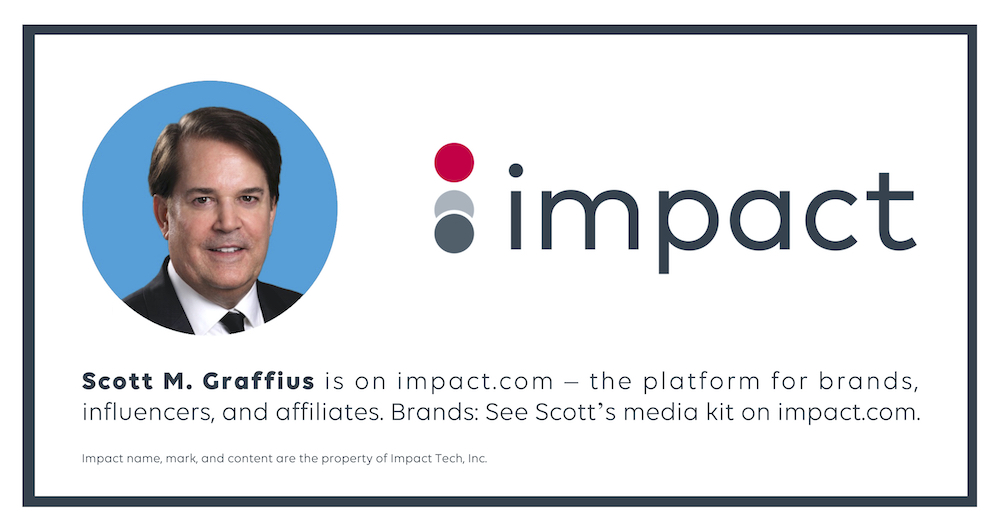

About Agile Scrum: Your Quick Start Guide with Step-by-Step Instructions
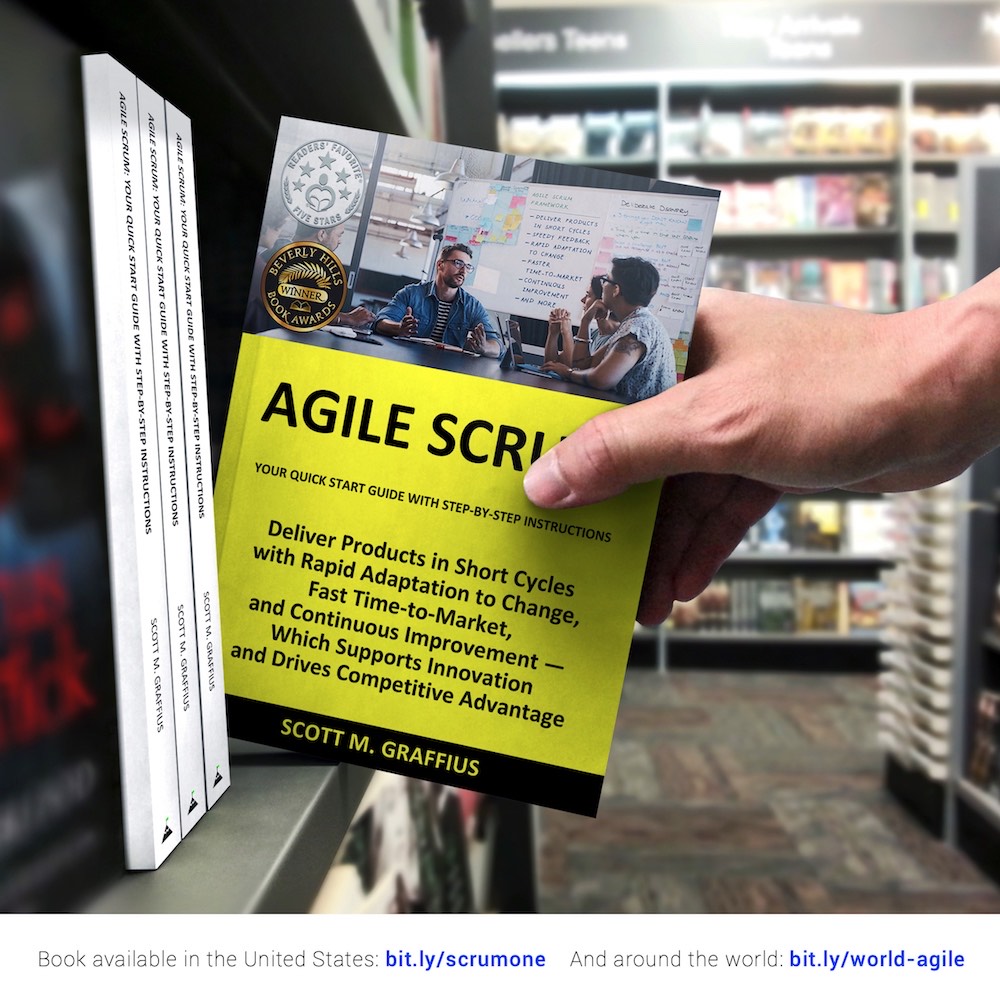
Shifting customer needs are common in today's marketplace. Businesses must be adaptive and responsive to change while delivering an exceptional customer experience to be competitive.
There are a variety of frameworks supporting the development of products and services, and most approaches fall into one of two broad categories: traditional or agile. Traditional practices such as waterfall engage sequential development, while agile involves iterative and incremental deliverables. Organizations are increasingly embracing agile to manage projects, and best meet their business needs of rapid response to change, fast delivery speed, and more.
With clear and easy to follow step-by-step instructions, Scott M. Graffius's award-winning Agile Scrum: Your Quick Start Guide with Step-by-Step Instructions helps the reader:
Hailed by Literary Titan as “the book highlights the versatility of Scrum beautifully.”
Winner of 17 first place awards.
Agile Scrum: Your Quick Start Guide with Step-by-Step Instructions is available in paperback and ebook/Kindle in the United States and around the world. Some links by country follow.

About Agile Transformation: A Brief Story of How an Entertainment Company Developed New Capabilities and Unlocked Business Agility to Thrive in an Era of Rapid Change
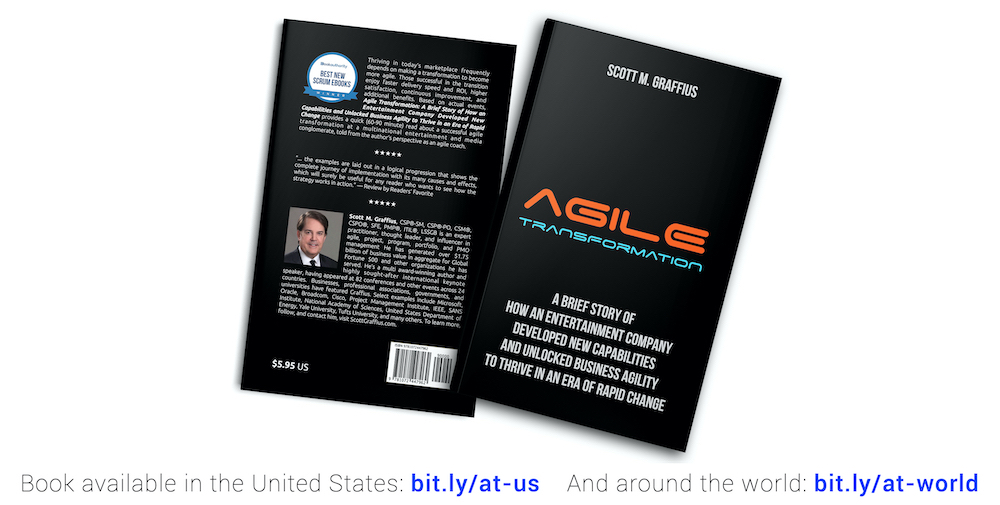
Thriving in today's marketplace frequently depends on making a transformation to become more agile. Those successful in the transition enjoy faster delivery speed and ROI, higher satisfaction, continuous improvement, and additional benefits.
Based on actual events, Agile Transformation: A Brief Story of How an Entertainment Company Developed New Capabilities and Unlocked Business Agility to Thrive in an Era of Rapid Change provides a quick (60-90 minute) read about a successful agile transformation at a multinational entertainment and media company, told from the author's perspective as an agile coach.
The award-winning book by Scott M. Graffius is available in paperback and ebook/Kindle in the United States and around the world. Some links by country follow.

The short link for this article is: https://bit.ly/win-skill
© Copyright 2024 Scott M. Graffius. All rights reserved. This material may not be published, broadcast, rewritten or redistributed without the express written permission of Scott M. Graffius.


A PDF of this article is here.
Note: When discussing moods and behaviors related to negotiations, the respective research uses the terms “angry” or “nasty,” contrasted with “happy” or “nice.” For that reason, this article uses those same terms. Also consider that an unhappy, irritated, or frustrated person may be labeled as “angry.” And a tough, difficult, or demanding person may be labeled as “nasty.”

Introduction
Chances are that you’ve already participated in some form of negotiations in your personal or professional life and that you’ll do so in the future. Negotiation is defined as a discussion between two or more parties aimed at resolving points of difference, crafting outcomes to satisfy various interests, or otherwise establishing an agreement. Handling a job offer, asking for a promotion, and buying and selling property such as a car or a house are just a few examples of deals you may have executed. Enhancing your negotiation strategies, tactics, and skills can have a big payoff on the outcomes of future deals.

Main Section of Article
What can you add to your arsenal to help you maximize value at your next visit to the bargaining table? How about this: Is it advantageous to be nice or nasty in a negotiation? “The Interpersonal Effects of Anger and Happiness in Negotiations” — a study by Gerben A. Van Kleef and colleagues at the University of Amsterdam — uncovered the answer. Read on to gain insights from the work.
The study encompassed three experiments. The first experiment involved a computer-mediated negotiation in which participants couldn’t see their opponent. And participants were led to believe their counterpart was either happy or angry. The findings follow. Participants with an opponent who they thought was angry placed lower demands and made larger concessions than did participants with an opponent who they thought was happy.
The procedure for experiment 2 was similar to the first one. This one further explored the effect of the informed mood of negotiation counterparts. The results showed that participants used information on mood to infer their opponents’ limit and they adjusted their demands accordingly.
The third and final experiment examined the interplay between experienced and communicated emotion. It showed that angry communications (unlike happy ones) induced fear and thereby mitigated the effect of the counterpart’s experienced emotion.

Conclusion
In conclusion, the study by Van Kleef and colleagues found that negotiators are influenced by their counterpart’s emotions. It showed that the expression of anger can be advantageous in some negotiation scenarios, challenging the “golden rule” that always being nice wins.
However, being angry or nasty doesn’t mean acting unethically. And if a person is simply acting a certain way, doing so could backfire if their counterpart sees through the display.
Based on the study and additional resources delineated in the references/sources section of this article, here are some considerations regarding behavior and mood during negotiations.
When to be nice in negotiations:
- Long-term relationships: In repeated negotiations, fostering goodwill with friendly gestures like concessions or expressing empathy can benefit both parties in the long run. It builds trust and cooperation, creating a more positive environment for future deals.
- Information exchange: When seeking information from your counterpart, a friendly approach encourages them to be open and share more readily. Creating a comfortable atmosphere lowers their guard and increases cooperation.
- Concessions for compromise: When seeking a compromise, initiating friendliness can signal your willingness to concede and encourage reciprocation from the other party, leading to a mutually beneficial agreement.
When to be nasty in negotiations:
- Short-term gains: In one-off negotiations, a strategic display of toughness (e.g., setting high demands, expressing firm resolve) can intimidate your opponent and pressure them into accepting less favorable terms.
- Protecting resources: When facing an unfair or demanding adversary, a firm and assertive stance can help protect your resources and prevent exploitation.
- Signaling strength: In situations where your bargaining power is unclear, projecting confidence and strength through assertive communication can deter the other party from taking advantage of you.
This article highlighted select valuable work on the nuances of negotiation behavior. For a deeper understanding, exploring the full research is highly recommended.


References/Sources
Select (partial) bibliography:
- Barry, B. (1999). The Tactical Use of Emotion in Negotiation. Research on Negotiation in Organizations, 7: 93-121.
- Clark, M.S., & Taraban, C.B. (1991). Reactions to and Willingness to Express Emotion in Two Types of Relationships. Journal of Experimental Social Psychology, 27: 324-336.
- Frijda, N.H. (1986). The Emotions. Cambridge, England: Cambridge University Press.
- Harvard Law School (2010, March 9). Should You be Nasty or Nice? Program on Negotiation, Harvard Law School. Available at: https://www.pon.harvard.edu/daily/negotiation-skills-daily/should-you-be-nasty-or-nice.
- Keltner, D., & Haidt, J. (1999). Social Functions of Emotions at Four Levels of Analysis. Cognition and Emotion, 13: 505-521.
- Hüffmeier, J., Freund, P. A., Zerres, A., Backhaus, K., & Hertel, G. (2014). Being Tough or Being Nice? A Meta-Analysis on the Impact of Hard- and Softline Strategies in Distributive Negotiations. Journal of Management, 40 (3): 866-892.
- Pietroni, D., Van Kleef, G.A., De Dreu, C.K.W., & Pagliaro, S. (2008). Emotions as Strategic Information: Effects of Other’s Emotions on Fixed-Pie Perception, Demands and Integrative Behavior in Negotiation. Journal of Experimental Social Psychology, 44: 1444-1454.
- Reis, H.T., & Collins, W.A. (2004). Relationships, Human Behavior, and Psychological Science. Current Directions in Psychological Science, 13: 233-237.
- Schwarz, N., & Clore, G.L. (1983). Mood, Misattribution, and Judgments of Well-Being: Informative and Directive Functions of Affective States. Journal of Personality and Social Psychology, 45: 513-523.
- Sinaceur, M., Adam, H., Van Kleef, G. & Galinsky, A. (2013, May 1). The advantages of being unpredictable: How emotional inconsistency extracts concessions in negotiation. Journal of Experimental Social Psychology, 49: 498-508.
- Thayer, S. (1980). The Effect of Facial Expression Sequence Upon Judgments of Emotion. Journal of Social Psychology, 111: 305-306.
- Van Beest, I., Van Kleef, G.A., & Van Dijk, E. (2008). Get Angry, Get Out: The Interpersonal Effects of Anger Communication in Multiparty Negotiation. Journal of Experimental Social Psychology, 44: 993-1002.
- Van Kleef, G. A. (2009). How Emotions Regulate Social Life: The Emotions as Social Information (EASI) Model. Current Directions in Psychological Science, 18 (3): 184-188.
- Van Kleef, G.A., De Dreu, C.K.W., & Manstead, A.S.R. (2004). The Interpersonal Effects of Anger and Happiness in Negotiations. Journal of Personality and Social Psychology, 86: 57-76.
- Voss, C. (2016). Never Split the Difference: Negotiating as if Your Life Depended on It. New York, New York: Harper Business.

How to Cite This Article
Graffius, Scott M. (2024, January 22). Should You Be Nasty or Nice in Negotiations? Available at: https://scottgraffius.com/blog/files/win-win.html.




About Scott M. Graffius

Scott M. Graffius, PMP, SA, CSP-SM, CSP-PO, CSM, CSPO, SFE, ITIL, LSSGB is an agile project management practitioner, consultant, thinker, creator, multi-award-winning author, and international public speaker. Founder and CEO of Exceptional PPM and PMO Solutions™ and subsidiary Exceptional Agility™, he has generated over $1.9 billion for Global Fortune 500 businesses and other organizations he has served. Graffius and content from his books, talks, workshops, and more have been featured and used by Microsoft, Oracle, Broadcom, Cisco, Gartner, Project Management Institute, IEEE, National Academy of Sciences, United States Department of Energy, Yale University, Tufts University, and others. He delights audiences with dynamic and engaging talks and workshops on agile project management, AI, Tech leadership, video game development, strategic alignment, the science of high performance teams, and more. To date, he's presented sessions at 89 conferences and other events across 25 countries.
His full bio is available here.
Connect with Scott on:



About Agile Scrum: Your Quick Start Guide with Step-by-Step Instructions

Shifting customer needs are common in today's marketplace. Businesses must be adaptive and responsive to change while delivering an exceptional customer experience to be competitive.
There are a variety of frameworks supporting the development of products and services, and most approaches fall into one of two broad categories: traditional or agile. Traditional practices such as waterfall engage sequential development, while agile involves iterative and incremental deliverables. Organizations are increasingly embracing agile to manage projects, and best meet their business needs of rapid response to change, fast delivery speed, and more.
With clear and easy to follow step-by-step instructions, Scott M. Graffius's award-winning Agile Scrum: Your Quick Start Guide with Step-by-Step Instructions helps the reader:
- Implement and use the most popular agile framework―Scrum;
- Deliver products in short cycles with rapid adaptation to change, fast time-to-market, and continuous improvement; and
- Support innovation and drive competitive advantage.
Hailed by Literary Titan as “the book highlights the versatility of Scrum beautifully.”
Winner of 17 first place awards.
Agile Scrum: Your Quick Start Guide with Step-by-Step Instructions is available in paperback and ebook/Kindle in the United States and around the world. Some links by country follow.
- 🇧🇷 Brazil
- 🇨🇦 Canada
- 🇨🇿 Czech Republic
- 🇩🇰 Denmark
- 🇫🇮 Finland
- 🇫🇷 France
- 🇩🇪 Germany
- 🇬🇷 Greece
- 🇭🇺 Hungary
- 🇮🇳 India
- 🇮🇪 Ireland
- 🇮🇱 Israel
- 🇮🇹 Italy
- 🇯🇵 Japan
- 🇱🇺 Luxembourg
- 🇲🇽 Mexico
- 🇳🇱 Netherlands
- 🇳🇿 New Zealand
- 🇳🇴 Norway
- 🇪🇸 Spain
- 🇸🇪 Sweden
- 🇨🇭 Switzerland
- 🇦🇪 UAE
- 🇬🇧 United Kingdom
- 🇺🇸 United States

About Agile Transformation: A Brief Story of How an Entertainment Company Developed New Capabilities and Unlocked Business Agility to Thrive in an Era of Rapid Change

Thriving in today's marketplace frequently depends on making a transformation to become more agile. Those successful in the transition enjoy faster delivery speed and ROI, higher satisfaction, continuous improvement, and additional benefits.
Based on actual events, Agile Transformation: A Brief Story of How an Entertainment Company Developed New Capabilities and Unlocked Business Agility to Thrive in an Era of Rapid Change provides a quick (60-90 minute) read about a successful agile transformation at a multinational entertainment and media company, told from the author's perspective as an agile coach.
The award-winning book by Scott M. Graffius is available in paperback and ebook/Kindle in the United States and around the world. Some links by country follow.
- 🇦🇺 Australia
- 🇦🇹 Austria
- 🇧🇷 Brazil
- 🇨🇦 Canada
- 🇨🇿 Czech Republic
- 🇩🇰 Denmark
- 🇫🇮 Finland
- 🇫🇷 France
- 🇩🇪 Germany
- 🇬🇷 Greece
- 🇮🇳 India
- 🇮🇪 Ireland
- 🇯🇵 Japan
- 🇱🇺 Luxembourg
- 🇲🇽 Mexico
- 🇳🇱 Netherlands
- 🇳🇿 New Zealand
- 🇪🇸 Spain
- 🇸🇪 Sweden
- 🇨🇭 Switzerland
- 🇦🇪 United Arab Emirates
- 🇬🇧 United Kingdom
- 🇺🇸 United States

The short link for this article is: https://bit.ly/win-skill
© Copyright 2024 Scott M. Graffius. All rights reserved. This material may not be published, broadcast, rewritten or redistributed without the express written permission of Scott M. Graffius.

